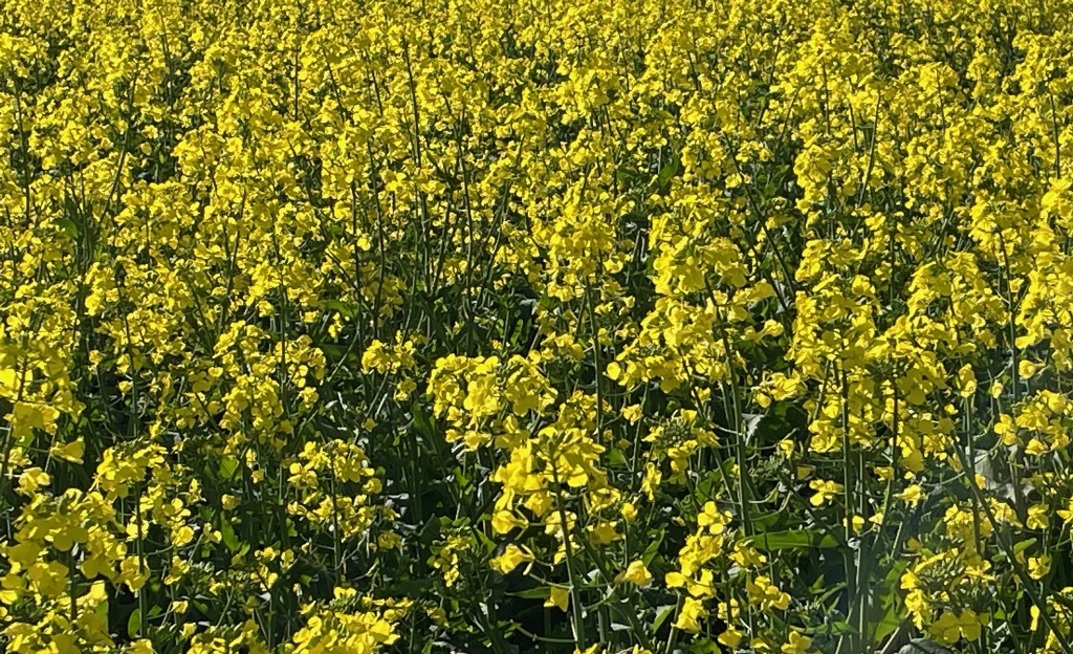THE New South Wales Department of Primary Industries and Regional Development (NSW DPIRD) is helping to nurture the next generation of crop engineers, with the PhD candidates and early-career researchers already advancing agricultural research and development.
Dr Harsh Raman, senior principal research scientist, said a new partnership with the ARC Training Centre for Future Crops Development is helping students to gain valuable experience in new agri-technologies, while delivering practical outcomes to stakeholders like crop breeding companies.
"The traineeship program provides participants with a comprehensive understanding of the fundamental principles used in traditional and modern plant breeding," Dr Raman said.
"NSW DPIRD is helping them to learn and deploy experimental designs for breeding trials, trial different breeding methods, analyse statistical and bioinformatics, use biotechnological tools such as genetic transformation and gene editing, and find out how they can navigate the complex intellectual property commercialisation spheres.
YOU MIGHT ALSO LIKE
"It's not just an opportunity to help shape the next generation of crop engineers, but this partnership has expanded NSW DPIRD's capacity to undertake different types of genetic research, marking an exciting phase for everyone involved."
CANOLA SHATTERED
Over the past 17 years, Dr Raman and his canola genetics team at NSW DPIRD have worked to identify critical genomic regions associated with pod shatter resistance in canola, field mustard and Ethiopian mustard.
Now, one of four ARC centre's Innovation Fellows, Dr Nay Chi Khin is helping the team genetically engineer a new canola plant variety that is pod shatter resistant.
Dr Khin is employed by the Centre through the Australian National University (ANU) and is working full-time at the DPIRD Gene Technology Centre in Wagga Wagga, New South Wales, under the mentorship of Dr Raman and his team, who have more than 50 years of collective experience in the industry.
"Thanks to the traineeship with NSW DPIRD, I'm not only helping the industry by developing practical solutions for real-world issues, but I'm also gaining valuable applied plant biology field experience, which is often hard to come by in the traditional academic sphere," said Dr Khin.
"Pod shatter is a significant issue for canola growers, leading to annual yield losses of between five to 30 per cent. Not only does this impact yield and overall crop profitability, but when canola seeds fall and shatter, they become weeds for whatever is planted next.
"These prompts farmers to spend additional time and money on herbicides to control these weeds or risk compromising the quality of their next crop."
Another student undertaking the traineeship (based in Wagga Wagga) is ANU Higher Degree Research candidate, Edward Asare. Asare is focusing on improving soil acidity tolerance in chickpea, with the aim to build resilience of chickpea in low pH soils.
"This work could revolutionise the way we approach chickpea farming in less-than-ideal soil conditions, which is particularly important for southern NSW where acid soils restrict the planting of chickpeas," Asare said.
GENE EDITING
According to the Centre, major advances in gene-editing and synthetic biology (SynBio) over the past five years have the potential to dramatically improve the efficiency of agricultural production with a predicted US$1.6 trillion global economic impact.
Six other PhD candidates enrolled at ANU are making good progress in their research, driving crop innovation in areas such as canola and chickpeas. These include:
- Ebtihal Alsadig Ahmed Mohamed, who is focused on improving the oil properties of Carinata, also known as Ethiopian Mustard. The oil derived from this crop is suitable for use in aviation fuel, offering a sustainable alternative to fossil fuels and helping reduce greenhouse gas emissions in jet engines.
- Reshma Roy, who is researching the architectural traits of Carinata.
- Sadia Majeed, who is studying the role of canola photosynthesis in canola, exploring how crop yield can be improved through integrated physiology and genetics.
- Muhammad Arslan Mahmood, who is developing resistance to blackleg disease in canola, aiming to develop strategies for its management and reduction in crop loss.
- Xiaoce (Mary) Ma, who is helping to develop genetic solutions to improve pod-shatter resistance in canola, contributing to efforts to reduce yield loss and improve crop stability.
- Alex Jose, studying nitrogen fixation in chickpeas helping the crop thrive in acidic soils, a key factor in improving crop yields in suboptimal soil conditions.
The Australian Research Council Training Centre for Future Crops Development (IC210100047) is a five-year project ending in 2027, partially funded by the Australian Government and led by the Australian National University and in partnership with the University of Adelaide.
The Centre partners with 20 Australian and overseas research and development organisations and industry partners including Australian Crop Breeders, Advanta, Nuseed, CSIRO, and the Grains Research and Development Corporation.
























